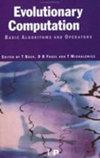简单新奇搜索的初步分析。
IF 3.4
2区 计算机科学
Q2 COMPUTER SCIENCE, ARTIFICIAL INTELLIGENCE
引用次数: 0
摘要
新奇搜索是在复杂空间中寻找不同对象集的有力工具。最近对简化版新颖性搜索的实验提出了一个想法,即新颖性搜索发生在档案空间的层面上,而不是单个点上。稀疏度衡量标准和档案更新标准创建了一个由两种衡量标准驱动的过程:(1)在尽量保持有效包装的同时,向外扩散以覆盖空间;(2)受 k 近邻理论启发的度量。在本文中,我们对以往的新颖性搜索简化进行了概括,纳入了用于生成新搜索点的传统种群(μ,λ)动力学,其中种群和档案分别更新。我们为平衡突变和稀疏性标准提供了一些理论指导,并引入了饱和概念,以此来讨论完全覆盖的空间。我们通过经验证明,认为新颖性搜索本质上是不客观的说法是不正确的。我们将新颖性搜索理解为档案覆盖率的优化器,提出了几种改进搜索的方法,并演示了一种简单的改进方法--直接从档案而不是父群体中生成一些新点。本文章由计算机程序翻译,如有差异,请以英文原文为准。
Preliminary Analysis of Simple Novelty Search
Novelty search is a powerful tool for finding diverse sets of objects in complicated spaces. Recent experiments on simplified versions of novelty search introduce the idea that novelty search happens at the level of the archive space, rather than individual points. The sparseness measure and archive update criterion create a process that is driven by a two measures: (1) spread out to cover the space while trying to remain as efficiently packed as possible, and (2) metrics inspired by k nearest neighbor theory. In this paper, we generalize previous simplifications of novelty search to include traditional population (μ,λ) dynamics for generating new search points, where the population and the archive are updated separately. We provide some theoretical guidance regarding balancing mutation and sparseness criteria and introduce the concept of saturation as a way of talking about fully covered spaces. We show empirically that claims that novelty search is inherently objectiveless are incorrect. We leverage the understanding of novelty search as an optimizer of archive coverage, suggest several ways to improve the search, and demonstrate one simple improvement—generating some new points directly from the archive rather than the parent population.
求助全文
通过发布文献求助,成功后即可免费获取论文全文。
去求助
来源期刊

Evolutionary Computation
工程技术-计算机:理论方法
CiteScore
6.40
自引率
1.50%
发文量
20
审稿时长
3 months
期刊介绍:
Evolutionary Computation is a leading journal in its field. It provides an international forum for facilitating and enhancing the exchange of information among researchers involved in both the theoretical and practical aspects of computational systems drawing their inspiration from nature, with particular emphasis on evolutionary models of computation such as genetic algorithms, evolutionary strategies, classifier systems, evolutionary programming, and genetic programming. It welcomes articles from related fields such as swarm intelligence (e.g. Ant Colony Optimization and Particle Swarm Optimization), and other nature-inspired computation paradigms (e.g. Artificial Immune Systems). As well as publishing articles describing theoretical and/or experimental work, the journal also welcomes application-focused papers describing breakthrough results in an application domain or methodological papers where the specificities of the real-world problem led to significant algorithmic improvements that could possibly be generalized to other areas.
 求助内容:
求助内容: 应助结果提醒方式:
应助结果提醒方式:


